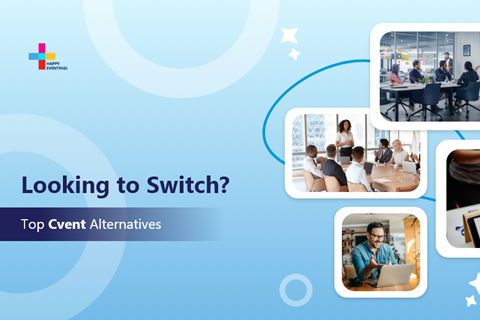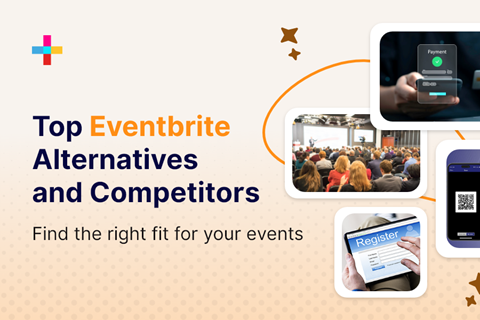

A life sciences conference offers invaluable learning and networking opportunities. For businesses, hosting scientific conferences or events is an excellent way to promote their products and gain traction. However, planning such a meeting can feel daunting at the outset. The myriad of tasks to manage seems never-ending and demands significant time and patience.
But that doesn't mean organizing the perfect life sciences conference is an unattainable dream reserved only for seasoned professionals. With the right planning knowledge, you can host an impactful scientific event, regardless of your career stage. This blog breaks down the most significant parts of scientific conference planning so you can deliver lasting experiences.
1. Understand Your Target Audience
The theme of your life sciences conference should resonate with your target audience. Begin by identifying who will be eager to attend your conference. Are you aiming to directly promote pharmaceutical products to customers or foster long-term relationships with healthcare professionals?
Perhaps your goal is to educate patients on various ailments, treatments, and medications. At times, you may need to arrange a scientific gathering for influencers in your field. Thoroughly consider your target audience to determine the appropriate theme for the conference. This will establish the groundwork for further planning.
2. Build Your Organizing Committee
Building a robust organizing team is one of the most crucial tasks of planning an impactful scientific conference. Divide the responsibilities among your team members according to their skills and interests. The key tasks may include managing conference content, handling marketing and promotion efforts, overseeing finances, managing paper submissions, coordinating keynote speakers, organizing presentations, and managing awards ceremonies.
Having a local organizing committee can greatly assist in arranging a successful life sciences conference, as its members are familiar with local institutions, speakers, or venues. Whether you have a local or remote organizing committee, it's crucial to have members with various responsibilities conduct regular planning sessions. Effective communication among team members will ensure the smooth execution of tasks.
3. Choose a Suitable Date, Time, & Venue
Figure out a suitable date and time for your scientific conference. You should have an idea of the schedule of your target audience. For instance, if you're inviting scientists and doctors, select a date that doesn't coincide with any major event in the life sciences domain that might divert your audience's attention. Alternatively, you can set a date that coincides with a key conference and organize yours either as a satellite meeting or a Special Interest Group (SIG).
Once you've settled on a date and time, it's time to determine a suitable scientific conference venue. Consider the following factors:
• The venue should be conveniently located. It should be near the airport if most attendees are international delegates or arriving from different cities.
• Ample parking facilities should be available for representatives arriving by car.
• Assess the size of the place. The event space should comfortably accommodate visitors, including provisions for restrooms and spaces for relaxation between sessions.
• Ensure the conference venue's cost fits well with your budget. Be sure to account for any hidden costs, such as parking fees and Wi-Fi charges. Additionally, inquire about complimentary amenities like coffee or tea.
• Verify that the scientific conference venue offers essential features such as PA systems, robust network connectivity, appropriate lighting, acoustics, and Wi-Fi.
• Explore the catering options provided by the venue to ensure they meet the dietary needs and preferences of your attendees.
4. Select a Format
Lifesciences conferences fall into three major categories. These include in-person, hybrid, and virtual. Your specific needs and preferences determine the type of conference you organize.
1. In-person conferences take place in a conference center or university campus. Attendees participate in sessions, watch presentations, and discuss topics with other researchers. Face-to-face conferences also provide excellent networking opportunities. They provide greater promotional opportunities for sponsors to engage directly with potential customers. However, you must hire adequate staff and ensure proper accommodation while arranging this kind of scientific conference.
2. Hybrid conferences are organized in a physical location, but they also provide ample opportunities for online participation. Attendees can choose how they want to be a part of it. Hybrid conferences promote maximum reach, but they could be a bit complex to organize.
3. Virtual or web-based conferences eliminate the need for the attendees to travel. They have many benefits, such as wider accessibility, cost-effectiveness, and eco-friendliness. The only crucial consideration is a robust network connection. Also, the need for employing measures to keep attendees engaged throughout increases in a virtual life sciences conference.
5. Find Keynote Speakers
To secure the right keynote speaker for a life sciences conference, you must take several factors into consideration. These factors include your target audience, the problem they are facing, and the nature of your company. Additionally, be mindful of their demographics. If they are younger, selecting a speaker who can effectively engage with them is essential.
Keynote speakers come with varying abilities; some excel at inspiring audiences, while others excel at simplifying complex topics. Ideally, you want a speaker who possesses a combination of these qualities. However, it all begins with defining your overall objectives. Once you have a clear vision of the type of speaker you require, proceed to recruit the best one.
You can seek recommendations from colleagues, explore online speaker bureaus, or utilize resources such as the TEDx database. Ensure to connect with a bureau specializing in booking life sciences speakers. Additionally, consider requesting a video abstract of the speaker's presentation to help you shortlist potential candidates. Finally, you can conduct Zoom calls with shortlisted speakers to finalize your selection and manage them.
6. Find Sponsors or Partners
Attracting sponsors is the next stage in organizing a fruitful scientific meeting. In order to accommodate venue, food, speakers, and other associated costs, you may need some financial assistance. Make contact with organizations or people who are interested in the target audience or topic of debate for your scientific conference. They must be in line with the objectives and principles of the event. Create a thorough analysis of your anticipated attendance and the advantages you want to provide your sponsors with.
If sponsors can clearly see a return on their investment (ROI), they will be more willing to fund your event. It is imperative that your approach be precise and comprehensive. Analyze the value of each benefit by referencing similar conferences or events. Use this information to create a sponsorship package with various levels and associated costs. Share the package with potential sponsors and diligently follow up to secure their support.
7. Create a Marketing Plan
Developing a marketing plan is crucial to ensure broader awareness of your conference. The first step involves creating an event website. Utilizing a custom website builder allows you to easily craft a tailored website to promote your life sciences event. Ensure it includes registration forms, location details, and an overview of the conference topics. Incorporate strong calls-to-action (CTAs) and social sharing icons to encourage increased engagement.
Consider implementing paid advertising campaigns. Use Facebook, Twitter, YouTube, and LinkedIn to do the same. Promote your event through popular medical newsletters and blogs. Crafting and distributing a press release to preferred medical journalists can also be effective. You can identify relevant journalists through Twitter or similar platforms.
Email marketing serves as another effective technique for spreading the word about your conference. Send personalized event information directly to your target audience via email. Tailor the messaging based on the audience; for instance, if attendees primarily consist of pharmaceutical businesses, use technical language, scientific terms, and industry abbreviations they are familiar with. Conversely, if the target audience comprises regular people or patients, utilize simple yet engaging language, along with graphics and videos. Be sure to include a compelling call to action at the end of the email.
8. Use an All-in-One Event Platform
To effectively manage your conference and avoid overlooking any details, consider investing in an event management solution specifically tailored for the life sciences industry. Such platforms offer a range of features that streamline the organization of in-person, hybrid, and virtual conferences.
You can customize the platform to align with your specific requirements, whether it involves promoting your conference, monitoring engagement throughout the event, or facilitating networking opportunities. With these solutions, organizers can also provide training sessions, share clinical studies, and offer access to resources and reference materials. In essence, such a platform provides comprehensive support for every stage of your conference.
Get Ready to Organize Impactful Conferences
Now that you're equipped with comprehensive knowledge on planning a successful life sciences event, utilize this detailed guide to orchestrate a scientific gathering that aligns with your objectives. By adhering to the insights provided here, you'll confidently navigate the intricacies of conference planning.
Connect with our experts to take your conference planning to the next level. https://bit.ly/498PjBV

Choosing the right event management platform is vital for event professionals navigating the growing demand for in person , virtual, and hybrid events. Modern planners need solutions that offer robust features,...

Every event organizer knows the sinking feeling of watching a well-planned budget unravel. That initial estimate of $400,000 suddenly balloons to $540,000 due to unexpected fees and overlooked expenses.

Eventbrite is a common name in the event management space, but if you’re here, chances are it isn’t checking all your boxes. Like many professionals, you may be looking for Eventbrite alternatives or exploring...